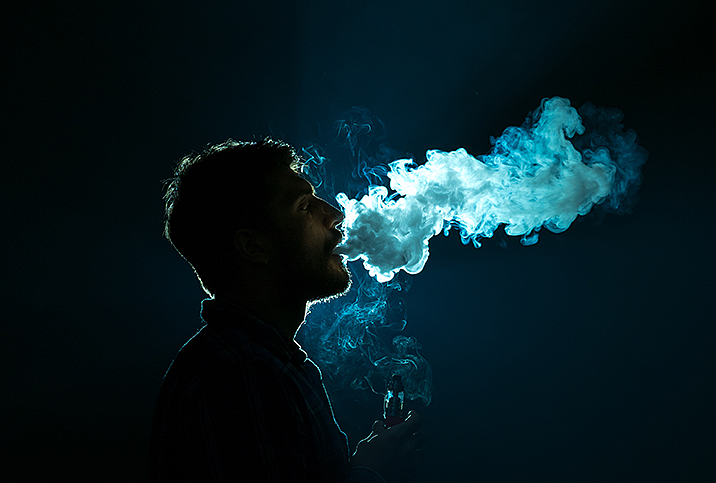How Tobacco Affects Panic Disorders

Smoking correlates to a number of high-profile health conditions we'd all prefer to avoid. Aside from general worries, such as cancer, reproductive health and multiple oral health risks associated with tobacco use, it's possible smoking habits can be a causal factor in panic attacks and ongoing mental health concerns of many kinds.
Panic attacks and panic disorder
Many people are viscerally familiar with the concept of a panic attack. Panic attacks are characterized as a sudden and overwhelming sense of fear, which is often accompanied by any number of possible physical symptoms. These can be mild in nature, such as light dizziness, perceived increase in heart rate or mild nausea, or there can be more extreme cases with instances of migraines, debilitating weakness or breathing problems. Regardless, the principle trait of a panic attack is, understandably, the panic. This can manifest as a feeling of being out of control or in mortal peril of some kind.
One of the more problematic aspects of these attacks is the prolonged sense of dread or fear, which persists between attacks. If a pattern of attacks becomes apparent, it may instigate a vicious cycle of panic induced before, during and after the event.
If you experience a panic attack, and especially if you have reason to fear it becoming a recurring problem, the best course of action is to see a doctor. If you're dealing with a panic disorder, medications or other treatments may be necessary.
How smoking changes things
Tobacco use impairs our natural ability to cope with stress and anxiety. Studies have shown people who smoke are as much as three times more likely to experience a panic attack or panic disorder at some point in their life than people who do not smoke. Nicotine releases dopamine, which might make a person feel less stressed momentarily. However, with habitual use, the brain becomes less self-sufficient in making dopamine by itself, which can contribute to issues with mood and stress management.
This leads us to the other direct way in which tobacco use can correlate to increased feelings of stress, anxiety or fear. It's a bit of a catch-22: Using tobacco can cause these issues, and so can quitting it.
When a tobacco user stops, the brain is suddenly denied a source of relief. The user becomes more vulnerable to feelings and internal processes they would normally numb with nicotine. This, in addition to various physical symptoms associated with nicotine withdrawal, is part of what makes quitting tobacco use so difficult for so many.
Breaking the cycle
The problem is panic is unpredictable. It swells and grows with time, feeding off of things in your everyday life. It can grow from the tiniest of seeds, and could be dismissed by people around you as an irrational reaction rather than an indicator of a larger problem.
Even outside of your own mind, little things can turn into big things. Small, daily financial expenditures become a burden on a smoker's budget and lifestyle. The need to smoke can create social or professional boundaries between smokers and nonsmokers in their lives. Often overlooked but playing a vital role in the equation is the fact that breathing becomes impaired by increasingly deficient lungs and other organs in smokers' and tobacco users' bodies.
The number-one practice a person can rely on for coping with stress, anxiety and panic attacks is a good, healthy breathing exercise. If your ability to breathe becomes deteriorated, your best method of getting oxygen to your brain is impacted in emergencies as well as everyday life and exercise.
Breathing issues are exceptionally common among symptoms described by patients experiencing panic attacks and panic disorders. There's a high probability that this can lead to repeated attacks and ongoing anxiety and fear.
Therefore, for smokers, kicking the habit plays a pivotal role in improving mental health management as well as general health concerns. Withdrawal symptoms can last for weeks or even longer, which for some people means an incredibly arduous and uphill battle with severe panic attacks, anxiety surges, and even symptoms of physical pain and discomfort.
However, once through the worst of the withdrawal symptoms, former smokers can look forward to improved vitality, increased sensory reception and even enhanced sexual performance.
Quitting is key
While some people have an easier time quitting than others, the idea remains incredibly daunting for many smokers and tobacco users. Fortunately, there are many ways to get help.
Counseling can be very beneficial. For former smokers and those in the process of quitting, a common form of counseling is group talk therapy—think support groups, for instance. One-on-one private counseling can also be helpful, but may or may not be covered by your current health insurance.
If you feel your smoking or other tobacco use habits may be worsening your symptoms concerning fear, anxiety, panic, stress or other health issues, be sure to talk to your doctor about the best way for you personally to quit.


















